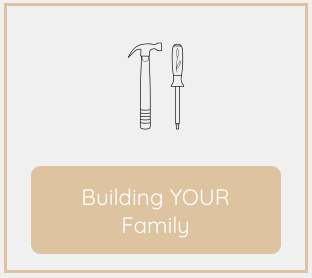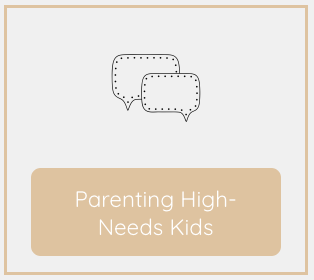Search results for 'New Baby' (10)
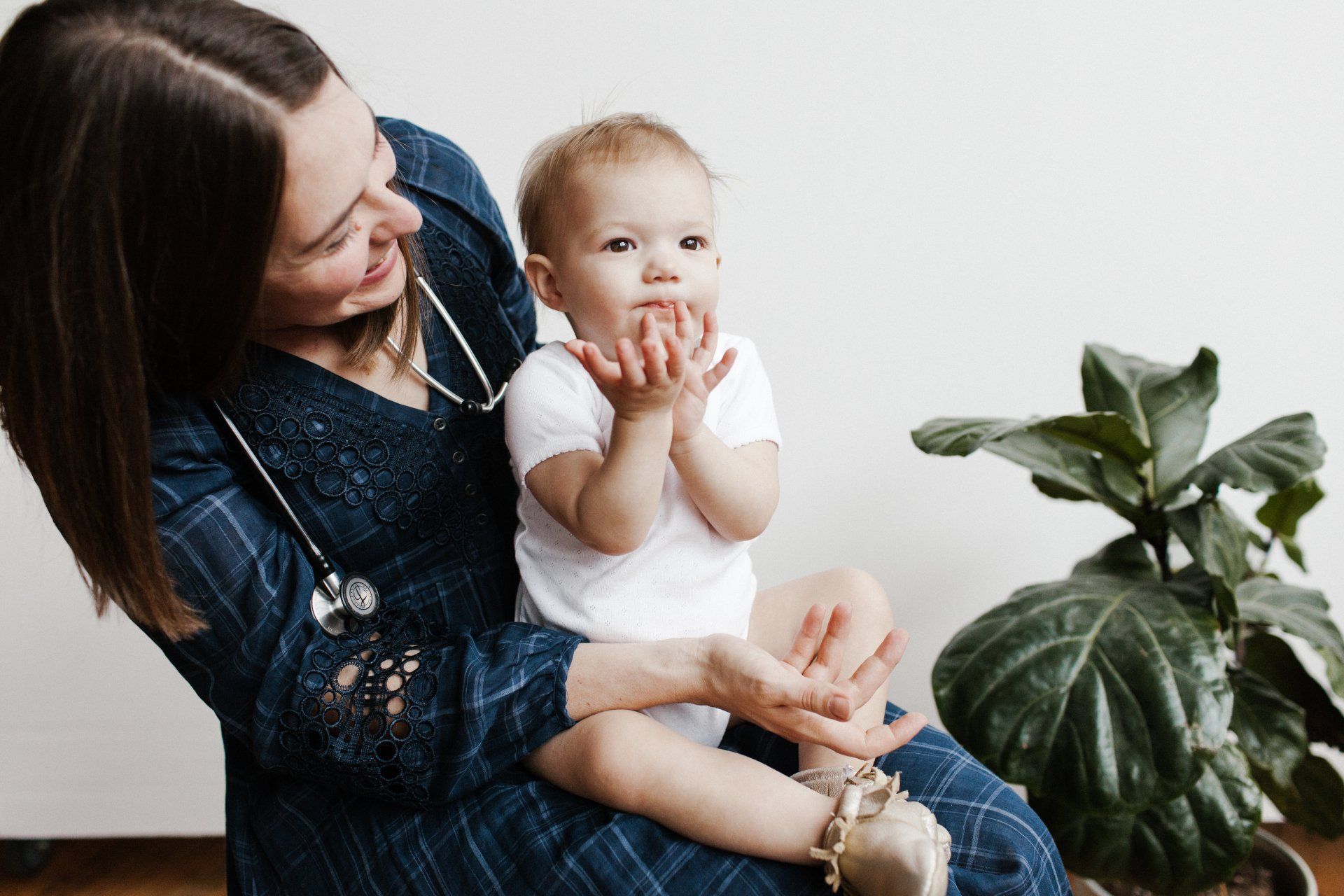
Dr. Whitney: Hello everyone and welcome back to the Modern Mommy Doc Podcast. I am Dr. Whitney, your host, and today I'm here with Karen Reardenz, Director of Editorial and Brand for Baby List. Karen, welcome to the show. Karen: Thank you. It's so nice to be here. Dr. Whitney: So we are going to talk today about all things baby gear and find out what the must-haves really are that people need when they have young babies and children. But we're also gonna talk about supporting moms and dads and caregivers on their journey when they have little ones. And I know that Baby List is all about that, in addition to providing suggestions for things that people can buy or asked to be gifted or put on baby registries. So Karen, as we start out, why don't you introduce yourself? Tell us about who you are, your journey toward being in this position, and what you do at Baby List. Karen: So I come from a career of journalism. I worked at the San Francisco Chronicle in San Francisco for many years on the digital side. I learned a lot and have a deep love of providing people with service content. So I worked in the lifestyle departments, but still it was focused on things like, how do you spend your time? How do you spend your money? How do you really help people? And I loved it. And then I got kind of burnt out on the 24 hour news cycle. It's really exhausting. You're working really long hours. The media business is a tough business to be in from a financial standpoint. We had lots of layoffs. And at the same time, I'm also a mom. I think my daughter was about six when I moved positions. I was commuting into the city and it was just a lot. So I started asking myself, where else can I go? What can I do? Because I'd been doing it for a long time. I started bouncing around to a few different marketing roles that were more general marketing roles and just wasn't quite the thing for me. And I really missed that sort of service aspect of really helping people with content. And I found Baby List and it was a really perfect spot to sort of reset. It's a brand, but it's a brand that really has a deep respect for content, for service journalism, and for really helping people. And so it was really exciting. It was a very, very small team at Baby List at the time, but an even smaller content team. And we were really able to sort of build what that looked like and the brand voice and our mission. And that's really to create content to help people. Obviously it has business objectives. But at the end of the day, it's really helping serve this audience of new and expecting parents who really need guidance. And there's a lot of content out there. Some of it is noisy and just trying to get you to buy things. Some of it is a very strong point of view that might be trying to make you feel bad about yourself or your decisions. And so we really wanted to put forward medically accurate, medical-based content product guidance that is really about you and your decisions and arming you with the facts and things that you need to know. And then you can make the decision that's right for your family. Whether it's a decision on to how to feed your baby or whether it's what stroller to buy. Dr. Whitney: I can totally appreciate what you're talking about in terms of career shifts or changes for myself. That's how I feel about my job as a physician. There's just this rigmarole of procedures over and over and over again. Of course, illnesses never stop. People never stop growing up and needing care. And so you just feel things repeating over and over and over. And when I found Modern Mommy Doc, I was so excited because I'm getting to actually dive a little deeper and feel like I do deep work every single day. That really matters. So I still love seeing patients, but this part of my life just feeds me so much. So I can appreciate as you moved over to Baby List, wanting to be in that space where you can say, hold on, let's just pause for a second and think about what would be really useful to people--as opposed to what do they need to know right now? Karen: Or chasing page views or writing about a Kardashian, which, love them, but it's a lot. Dr. Whitney: Yes, absolutely. The other piece that I'm so interested in knowing about is you talked about making Baby List recommendations, making sure that they're medically accurate, making sure that they're actually gonna be helpful for people, so people don't end up spending their money or getting gifts that actually are gonna be harmful to a baby or that won't actually work. What's the process you all go through to make sure that happens? Is there a research process? Because there's lots of stuff on the internet. People could find a list of things to buy anywhere and everywhere. Karen: Yes, totally. So from a gear and product perspective, we have a team of editors. Our gear editor is amazing. She's a mom of two. She always says," My husband's getting a little upset because the garage is filled with strollers and car seats." So she's constantly getting new products to test, really testing them out, giving them to friends, different lifestyles, and different kinds of families. And then does a lot of research and does user reviews. We also do user surveys of our own audience annually to get their feedback on what their favorite products are and why. So we're taking in all of this different data. Then we have data of what people are registering for, what people are buying, what is on registries. And so we kind of take all of that and then make our product recommendations. Something like car seats, strollers, baby monitors, carriers, these heavier decision items, we do a lot more research on. Baby clothes are maybe a lower lift because, sure, we want cute stuff and as long as they're safe, that's all that matters and they're regulated. So, that's kind of our process for gear guides and product guides. And then from more of our health and wellness content, we talk to doctors, we talk to experts and we include that in there. We cite medical research within the articles so we can try to give a balanced point of view. We're not saying if you do X, you're a terrible parent, but here are the pros and cons of these different things. And now you're armed with the information to either go talk to your doctor or your healthcare provider or to make the decision yourself. Dr. Whitney: That really matters, because I'm always torn. I love that we are living in a world where everybody gets to have an opinion, where people can be self-advocates, and that people can make choices. I hate the idea of paternalistic medicine. I think we did a lot of harm to people with that. And at the same time, I think sometimes what gets lost when it's a free for all on the internet is that there's no standard by which to judge a product, to judge gear, to judge something medically. So I love the idea of you all putting out content that says there might be some cons you need to consider. Or here are the pros you can consider. And then yes, please, please, please come talk with us at your doctor's office, at the pediatrician's office. The American Academy of Pediatrics puts out a lot of information about recalls to us, so we hear about that first. We also hear about when they say policy changes, where they don't want people using certain types of gear. The Rock-and-Play was a good example of that. For a while everybody was using Rock-and-Play. I used Rock-and-Play with my kids. And then we had to tell everybody really quickly, do not do that, because at this point, The American Academy has said, please don't. Karen: I think the sleep space is really so confusing for parents because it's such a visceral time. You have this new baby, no one's sleeping, no one understands one another. You're like, I have this baby, I don't know what to do. If you gave birth, you just went through this very large life change and physical experience. You're exhausted, you're hormonal, and you're really desperate. You just want your baby to sleep. There are all these products on the market like the Rock-and-Play that people think are going to be the magic bullet. But then there are these safety issues. And I think we see that a lot with some of the recalls or the safety guidance coming out now that makes it very confusing for parents. Is it okay for my baby to sleep in the car seat? What if they fall asleep? All of these things I think are very confusing to a new parent. And then they're thinking, how do I weigh that I really need to get some sleep versus the baby's safety. And we take that seriously, so we have safe sleep guidelines within our own organization, but at the same time, we know the baby's gonna fall asleep on you or the baby's gonna fall asleep in the car seat. We wanna be able to present that information to people where we can say, here are the guidelines if this happens. Wake up, move them to the bassinet or the crib. You don't wanna make people feel judged or guilty for things that they do, but you really wanna arm them with the decision making and feel empowered to make the decisions for themselves. Dr. Whitney: Yeah, for sure. You know, one thing that I always remind parents is it was not evolutionarily the way that it is now, thousands and thousands of years ago, right? Even hundreds of years ago, we all slept with our babies. We slept in like a hut in one room together and there were children that died in that situation. So we don't recommend that, but everybody slept a lot better. And we didn't have the same decisions that we have to make now, back then when everyone was sleeping in that really cozy way. So it makes sense that sleep is difficult as our bodies are evolutionarily wired to be connected to our babies 24/7, basically in that fourth trimester after they're born. So that makes sense. The other thing I tell people is separating out your sleep needs from your baby's sleep needs is one of the most important things you can do. The old adage was sleep when your baby sleeps. And that works for some people, but for a lot of people it makes more sense to find someone else to take care of your baby when they're awake, when you need to sleep. So that way, you get the rest you need and you don't have this expectation on your infant who is not developmentally ready to actually sleep for the extended periods of time that you hope and wish and pray and see in social media. Because a lot of that's just not real. They're unicorn babies. Karen: I'm a hundred percent in line with what you're saying, particularly around prioritizing yourself in that time. I think in general with motherhood and parenthood, you have to make sure that you are still a person and you're still your own person. You change so much during parenthood, in many different ways. But at the end of the day, you're still your own person and you still have your own interests and you still have your own needs and priorities. If you are not taking care of you and not just your sleep, but you as a whole person, you're not giving your best. You're not taking care of your baby. You really have to prioritize yourself in certain ways and it feels selfish. It feels like you're just supposed to be here to care for this new human. That's true, but you need to care for yourself too or ask for help or find people who will also help care for you too. Dr. Whitney: You have a lot of content about that on Baby List as well, right? I mean you have content that's about the gear itself, the products themselves, but then also on supporting parents and giving information about what's normal and what's not for babies as well. Karen: Yes, definitely. Obviously the product guides are sort of our bread and butter as a registry company. But we definitely have a lot of content to help support people if they're pregnant in their pregnancy journey or the fourth trimester. We're building out a ton of content around that. And then we're expanding into parenting content. So for at least through two years,we really want to help support both the parent in that journey, but also understanding what's happening with your baby, what questions to ask, and then what to look for both from product guidance as well as from a mental health perspective too. Dr. Whitney: I love that. And of course you guys can head to ModernMommyDoc.com for more of that from us too, for all of the self-care info from babyhood and beyond. So I wanna hear from you, because you've been doing this for a while and you're the expert at it. Are there certain products that you all see parents gravitating toward that you see as such a huge waste of money? Either a category or things that you find that people really wanna spend money on, but it doesn't matter. And then vice versa. What are the things that you find that are so helpful to parents that again and again and again, you're including on your list? Karen: We talk about this a lot, particularly around what is a waste of money. And it's so funny because one person's trash is something that another person could never live without. Like baby warmers. This is a super unpopular opinion amongst the Baby List crowd, but I could never get the hang of a breastfeeding pillow. I just could not understand how to make it work. Everyone else on the Baby List staff, it's among their top five and tell everyone you need one for all these different areas of your house. And so it just really goes to show how individual those things are. In the early stages, I think swaddles are amazing. There are many different kinds out there. I, as a parent, could never really get the hang of the muslin swaddles. I couldn't figure out how to wrap them myself. But that are others that are the two-in-ones that are great! You just make them so cozy and then you get the amazing post-swaddle baby stretch, which is just the cutest thing in the world. I think that those are amazing. I think that there are a lot of really tried and true brands out there. I think particularly in the car seat space, you can get a ton of really good, affordable, safe car seats. Carter's clothing is amazing. It's affordable, it's cute. They have body suits with two-way zippers, which make things so much easier for diaper changing. They're soft. You can wash them a ton. Dr. Whitney: The other big thing I would tell people is when you're going out with your baby, less is sometimes more. I remember the first time we went out to lunch after my baby's checkup at the office when she was a week old. We went out to lunch and I had a travel breastfeeding pillow, a full diaper bag, and a little mini hand pump. I mean I had so many things from the car into the restaurant and I just made it actually even more difficult to be there. It was so uncomfortable and difficult and I couldn't find my things. And so I've learned, over time, to minimize as much as possible. Store that stuff at your house, for sure. But just be selective about what you're bringing out with you, because the more you're carting around, the more difficult that it can be. Karen: And it also makes it stressful for you too, having all of those things. Are you going to pump at lunch? Do you need three different blankets? Babies come with a lot of stuff, but it makes it harder when you've got it all out with you. Dr. Whitney: Now I saw you live in Alameda, California. I'm from the Bay Area, as well, and I have always lived on the west coast or east coast. I went to medical school on the east coast. And so I wonder also, do you all see differences in terms of what people are into when they're bicoastal or when they're in central? Urban settings versus less urban settings? What's been the difference there? Karen: We see some brand differentiation on the east coast versus west coast. We started as a west coast based Oakland, Bay area company. So from a west coast perspective, we're always like, oh, I never see that brand. And then we'd go to New York and you just see them everywhere. So definitely a brand differentiation. And we definitely see differences in urban versus less urban. We see lightweight strollers, baby carriers, things like that in urban settings where you are almost using your stroller as a car in certain ways. You need a good basket, so you can go to the local store and fill up on groceries. You also wanna lightweight stroller if you're in a walkup apartment. Storage is definitely something important in cities because of smaller spaces, so people are looking for high chairs that fold really easily or strollers that fold really easily that you can store places or self self-standing fold. And then from a more suburban area, you see things where people are using jogging strollers and bigger strollers because they can put it in the garage or they just store it in the back of the car. And then terrain too. People are using them in different settings. And then obviously weather affects choices in clothes, stroller accessories, your winter muffs, things like that that. Dr. Whitney: Awesome. Well Karen, I think this has been amazing. I think a lot of people, actually myself included really, probably didn't know how vast a resource or how broad a resource Baby List was and how you all are providing more support. But then also I love how intense you are about trying to make sure that the content is actually really helpful and that it's well researched, so that it's safe for parents. Because, like I said, there's so many sites out there, so we wanna make sure that people are going to sites that are actually gonna be reputable and provide them with helpful recommendations versus just ways to squander money. So thank you for being here. How can people find more about Baby List? How can they get on their registries? How does it work in terms of them accessing all the information that you have? Karen: So anyone can access the content information. You don't have to have a baby registry. You can Google "best car seats" and we come up. If you wanna create a Baby List registry, you can go to babylist.com and sign up there and create your registry. We have amazing emails that are both for the expecting parent and the new parent audiences, full of lots of great information that really helps meet them at the stage that they're in. You can follow us on social. We have an amazing TikTok with tons of really fun, entertaining product information. Also emotional content that makes you laugh, makes you cry. We also have the Baby List app, which if you have a registry, you can do a lot of research and add things through that. Dr. Whitney: All right, thank you so much for being here. And you guys head on over to babylist.com or check them out on social. Until next time.

Having a new baby can be stressful when it comes to mental health but also when it comes to your physical health. This week on the podcast, we’re talking to Eryn Kirschbaum, PT, DPT, PRPC about how to take care of your pelvic floor. We’re putting it all out there, discussing hemorrhoids, urinary incontinence, constipation. You name it, we’re covering it!

Last week on the show, we talked about developing a healthy eating plan for yourself while you’re pregnant and after baby, but what about getting your baby off to a good start with solid foods? Pediatrician, mom, author, and dietitian Dr. Natalie Muth joins us today to discuss how to transition to solids and how to develop a sustainable family feeding and fitness plan!
Read Dr. Muth’s Books and Follow Her:
How to Raise Heathy Eaters (Www.drnataliemuth.com)
Family Fit Plan (Www.drnataliemuth.com)
————————————————
Our Book is Here!
(www.modernmommydoc.com/book) is on shelves now and online wherever books are sold.
The Bump said: "They say motherhood doesn’t come with a manual, but The New Baby Blueprint, brought to you by the American Academy of Pediatrics, comes pretty close. Author Whitney Casares, a pediatrician and mom of two, walks expectant parents through all the essentials of prepping for baby’s arrival, including what to expect in the first days and weeks, and how to prepare your home, your partner and your brain for having a newborn—all through a relatable mix of humor and practical advice."

You've done the hard work of having a baby. Now it's time to nourish yourself while you nourish your little one. On the podcast this week, Megan Landrum and Anna Bohnengel, creators of Alavita, an online peripartum nutrition plan for expectant and new mamas, talk about their own eating journeys and how they support moms everywhere looking to optimize their health postpartum and feel good in their own bodies.
Find Alavita
www.alavitanutrition.com (www.alavitanutrition.com)
————————————————
Our Book is Here!
(www.modernmommydoc.com/book) is on shelves now and online wherever books are sold.
The Bump said: "They say motherhood doesn’t come with a manual, but The New Baby Blueprint, brought to you by the American Academy of Pediatrics, comes pretty close. Author Whitney Casares, a pediatrician and mom of two, walks expectant parents through all the essentials of prepping for baby’s arrival, including what to expect in the first days and weeks, and how to prepare your home, your partner and your brain for having a newborn—all through a relatable mix of humor and practical advice."

This week on the podcast, we welcome Damon Korb, MD, FAAP. As a developmental and behavioral pediatrician and the father of 5, Dr. Korb knows a little something about raising kids who are confident, independent, and self-reliant. He joins us to talk about his book, (https://www.amazon.com/Raising-Organized-Child-Independence-Frustration/dp/1610022823) It helps parents develop their children's organized thinking skills and executive function. These skills are tied to developmental milestones, so whether a child is an infant or a teenager, it's never too late (or too early!) to foster organization in him or her and harmony in the whole family. It's an especially relevant topic now that we all find ourselves at home with our kids on the regular and want those homes (and our children) to be in order!
Follow Dr. Korb
Website: Raising an Organized Child (http://raisinganorganizedchild.com/)
Twitter: @DrKorb (https://twitter.com/drkorb?lang=en)
Read the Book
Raising an Organized Child (https://www.amazon.com/Raising-Organized-Child-Independence-Frustration/dp/1610022823)
————————————————
Our Book is Here!
(www.modernmommydoc.com/book) is on shelves now and online wherever books are sold.
The Bump said: "They say motherhood doesn’t come with a manual, but The New Baby Blueprint, brought to you by the American Academy of Pediatrics, comes pretty close. Author Whitney Casares, a pediatrician and mom of two, walks expectant parents through all the essentials of prepping for baby’s arrival, including what to expect in the first days and weeks, and how to prepare your home, your partner and your brain for having a newborn—all through a relatable mix of humor and practical advice."
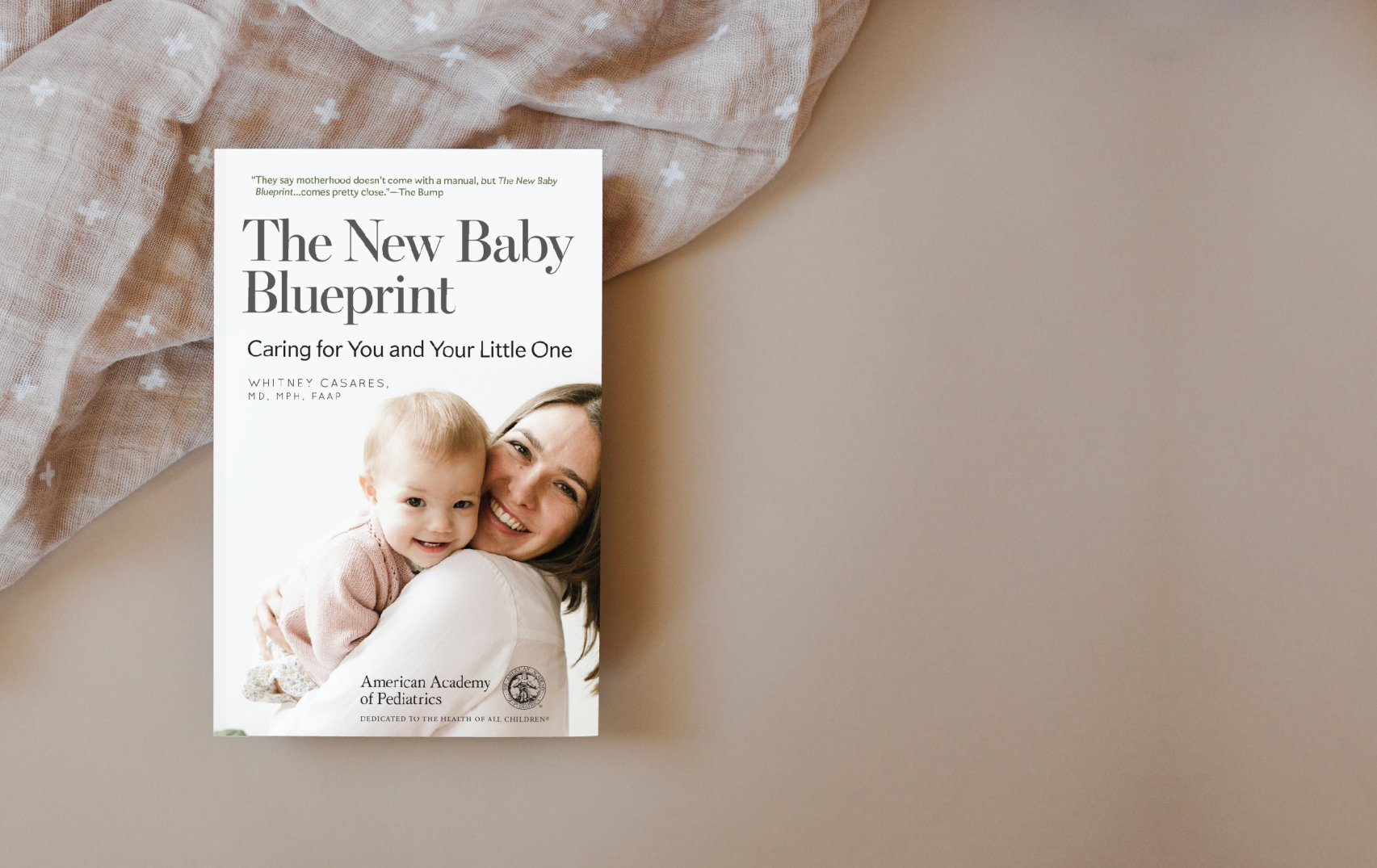
No matter what's going on in the world, new parents need help navigating the early days and weeks with a new baby. The New Baby Blueprint gives them the information, resources, and tools they need to make early parenthood not just tolerable, but successful! It's Already Getting Rave Reviews: "They say motherhood doesn’t come with a manual, but The New Baby Blueprint , brought to you by the American Academy of Pediatrics, comes pretty close. Author Whitney Casares, a pediatrician and mom of two, walks expectant parents through all the essentials of prepping for baby’s arrival, including what to expect in the first days and weeks, and how to prepare your home, your partner and your brain for having a newborn—all through a relatable mix of humor and practical advice." —Ashlee Neuman, The Bump "Dr Casares has written a parenting manual that helps new and experiences caregivers of infants just survive but thrive. Writing in an often humorous conversational style, Dr. Casares comes across not only as a knowledgeable expert on newborn parenting but also as a life coach whose advice is sound, reassuring, evidence based, and inspirational!" —Lewis First, MD, MS, FAAP, professor and chair Department of Pediatrics, University of Vermont Larner College of Medicine; chief of pediatrics, University of Vermont Children's Hospital; and editor in chief, Pediatrics "In this internet age of 'experts' giving advice on parenting, Dr Casares, a skilled pediatrician and mother, distills down volumes of information into a single, easy-to-read guide. Her book is honest and practical--a fresh focus on the mother's needs as well as those of the infant. Her candidness about her own struggles with bringing her babies home, combined with her work with countless new mothers in her practice, informs this modern blueprint for the well-being of the professional mother and her family." —Nicole Cirino, MD, reproductive psychiatrist; director, Women's Mental Health Program, Oregon Health & Science University (OHSU) Center for Women's Health; and professor of obstetrics and gynecology and of psychiatry, OHSU "Dr Casares shares her expertise on newborns from her professional role as pediatrician and mom in a funny, practical, and down-to-earth manner. Her book provides the most practical advice for new moms that I have read . . . form preparing for the birth of the child to managing expectations of new moms and sharing her own personal experiences to giving parents-to-be all they need to know but were never told about having a baby. New moms everywhere will find this guide to being a parenting invaluable and refer to it again and again." —Deborah Rumsey, Executive Director, Children's Health Alliance "Pediatricians often get emails, texts, and calls from friends seeking parenting advice from someone with a pediatric medical background. Dr. Casares wrote a book that meets this need! She blends practical parenting tips and medical knowledge in this fresh and fun perspective on parenting. It's a great read for any parent who is interested in the pediatrician-mom perspective!" —Lauren Rose, MD, FAAP, newborn and pediatric hospitalist "A wonderful, practical resource! With both the good sense of a mom who's 'been there, done that' and the seasoned experience of a pediatrician who's helped hundreds of moms navigate the same journey, Dr Casares offers wise guidance and practical tips to parents of newborns. Easy to read, it strikes the right balance between an overall approach to parenting and practical advice on the nitty-gritty details. It's like having coffee with a best friend who, by the way, just happens to be an expert on all things related to new babies and new moms. I can't imagine a better baby shower gift." —Janelle Aby, MD, FAAP, author of The Newborn Book and clinical professor of pediatrics at Stanford University School of Medicine

With coronavirus COVID-19 in our midst, we have a lot of moms at home with their young kids. Those moms are spending A LOT Of time helping those kids manage their often very big emotions. This week, our guest Tracy Cutchlow, author of (https://www.amazon.com/Zero-Five-Essential-Parenting-Science-ebook/dp/B00K4JVSXU), talks about what moms can do to make parenting in the first five years more manageable and less frustrating. It's the perfect episode for this moment as we practice more social distancing and more time together with our children.
Parents magazine called Zero to Five "the coolest--and easiest--book for new parents." Tracy was the editor of two bestselling books: Brain Rules and Brain Rules for Baby.
Follow Tracy:
www.zerotofive.net (http://www.zerotofive.net/)
————————————————
Looking for even more advice on breastfeeding or on ALL things new baby?
The book is here!
(www.modernmommydoc.com/book) is on shelves now and online wherever books are sold.
The Bump said: "They say motherhood doesn’t come with a manual, but The New Baby Blueprint, brought to you by the American Academy of Pediatrics, comes pretty close. Author Whitney Casares, a pediatrician and mom of two, walks expectant parents through all the essentials of prepping for baby’s arrival, including what to expect in the first days and weeks, and how to prepare your home, your partner and your brain for having a newborn—all through a relatable mix of humor and practical advice."

Breastfeeding can be a beautiful part of the new mom experience but it can also be daunting and disappointing. This week on the podcast, certified lactation consultant Katie Kennedy, IBCLC, talks with me about what mamas can do to set themselves up for breastfeeding success (and what success really means when it comes to this sensitive area)...and what they can do if it feeding their babies doesn’t go as planned.
————————————————
Looking for even more advice on breastfeeding or on ALL things new baby?
The book is here!
(www.modernmommydoc.com/book) is on shelves now and online wherever books are sold.
The Bump said: "They say motherhood doesn’t come with a manual, but The New Baby Blueprint, brought to you by the American Academy of Pediatrics, comes pretty close. Author Whitney Casares, a pediatrician and mom of two, walks expectant parents through all the essentials of prepping for baby’s arrival, including what to expect in the first days and weeks, and how to prepare your home, your partner and your brain for having a newborn—all through a relatable mix of humor and practical advice."
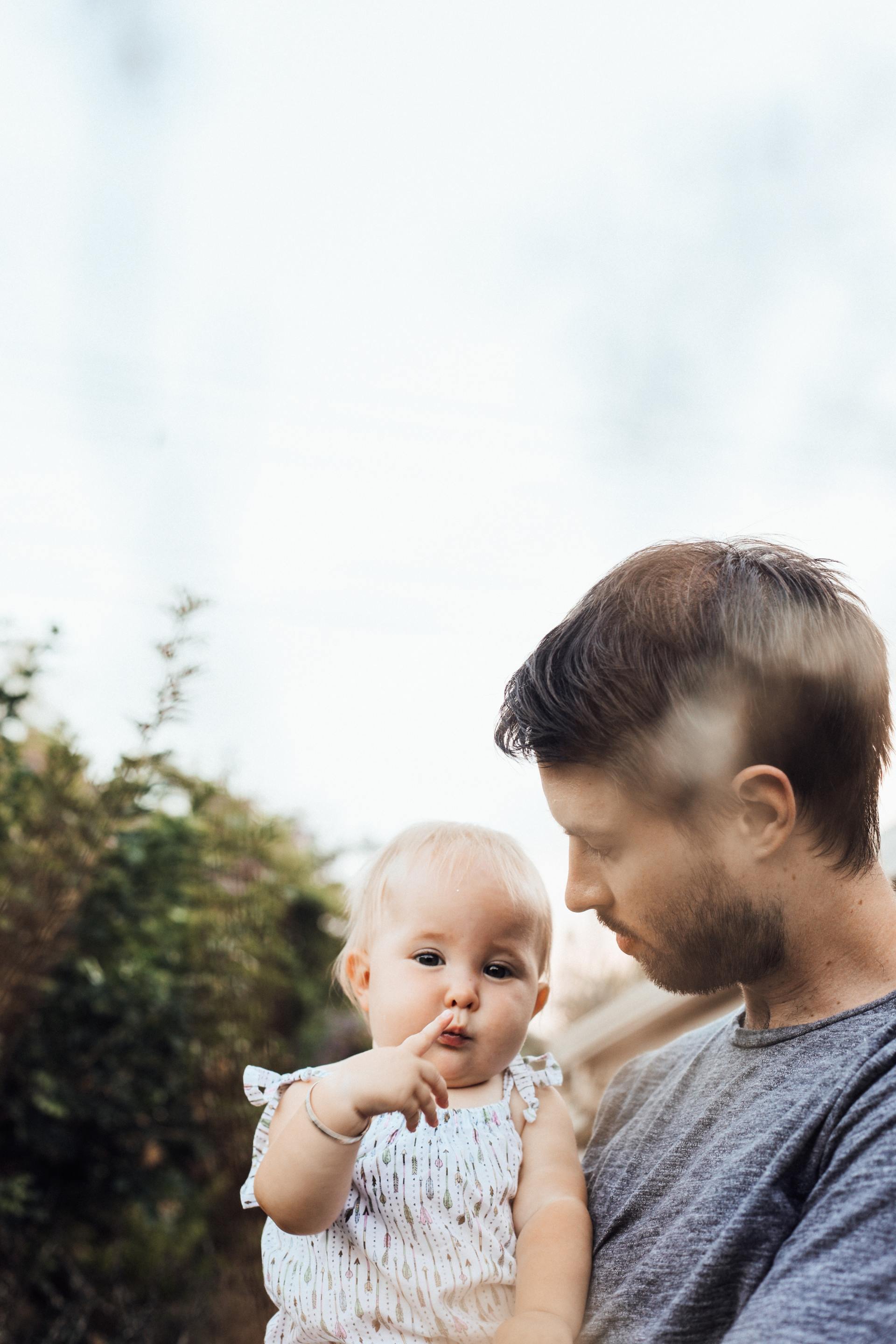
I know some amazing dads. My husband is one of them. He cares so much about teaching my kids about their worlds. He’s great at getting them excited about cooking and sports and gardening. He gets an A+ in my book (most days). But the day my daughter came home, when he first earned his dad badge, he said he felt unprepared. Sure, we’d both been present at our birthing class and learned how to swaddle together. Looking back, though, he said he felt like he didn’t know what to expect when it came to normal baby behavior and definitely didn’t feel ready to take the lead on newborn care. I’m sure it didn’t help that his wife was a pediatrician. Still, the more dads I meet, the more I find so many feel the same way. I feel kind of bad for modern-day dads like the one who lives in my house. I mean, not as bad as I feel for modern-day moms. But I do feel bad. It seems like, when we empowered women to be just as fierce in the workplace as at home, forever changing modern-day motherhood, we forgot about educating men on how to change their perspective on modern-day fatherhood. We figured they would just adjust without any effort or preparation, magically skilled and knowledgeable in all things baby. Add in the Mr. Mom monickers and the media depictions of helpless new dads fumbling through parenting — it’s a not a surprise a lot of dads I see aren’t sure exactly where they fit into the new parenting paradigm. How do we include new dads in the early baby care process? How do we, as mothers-to-be, encourage and empower them to be equal players as we parent our young children? I say, start here: Get Educated Together How does someone become an expert in any field? They study. If, as a mom, you are the only one in your family studying up on babies before or after your infant arrives, you’re going to be the only one who knows anything. And, that means, you’ll be the only one who feels confident enough to take charge. Everyone learns in different ways. If you learn best by reading, your partner may learn best by attending a class. Or, he may learn best by talking with other dads who have been through the newborn dog days. It probably won’t work to force your partner to learn the exact same way you do, but it will work to expect that both of you have a working knowledge of common baby issues, newborn care basics and proven calming techniques so you can problem-solve from the same educated perspective. Take a Giant Step Back It’s annoying to have someone looking over your shoulder, micromanaging your every move. If you’ve ever had a super-controlling boss or even a nitpicky parent, you know the feeling. When someone doesn’t trust us or tries to manage us, it makes us feel resentful and irritated. We sometimes even lose our organic interest in the topic and stop putting our best effort into it. That’s what happens when we don’t allow our partners to play an equal role in taking care of our children. We kind of sabotage our hope of true co-parenting. Instead, be conscious about how to empower your other half to be the parenting boss more often. If you’re breastfeeder-in-chief in your home, make him soother-in-chief, in charge of calming your baby. That might mean actually leaving the house so he has the space to parent without your eagle eyes. It definitely will mean holding your tongue (or sighs or eye rolls or judgment) if he’s not doing things exactly how you would do it. If you both get educated together, you can be equal “experts” and this won’t be so hard. Take a Strengths-Based Approach If you’re about to have your first baby, you’re bound to go through some major changes. So is your partner. But, unlike you, your partner isn’t going to get much guidance at all on his transition to parenthood unless he actively seeks it out. That’s just the way our society works (don’t worry - moms don’t get off easy in the end, either — the pressure to be constantly glowy and happy as we’re compared against the Motherhood Goddess Myth is just as strong and it hits us before our babies even arrive). You can play a major role in helping your partner get ready to be a new parent, though: Let dad be an equal parenting partner and an equal parenting expert from the very beginning.
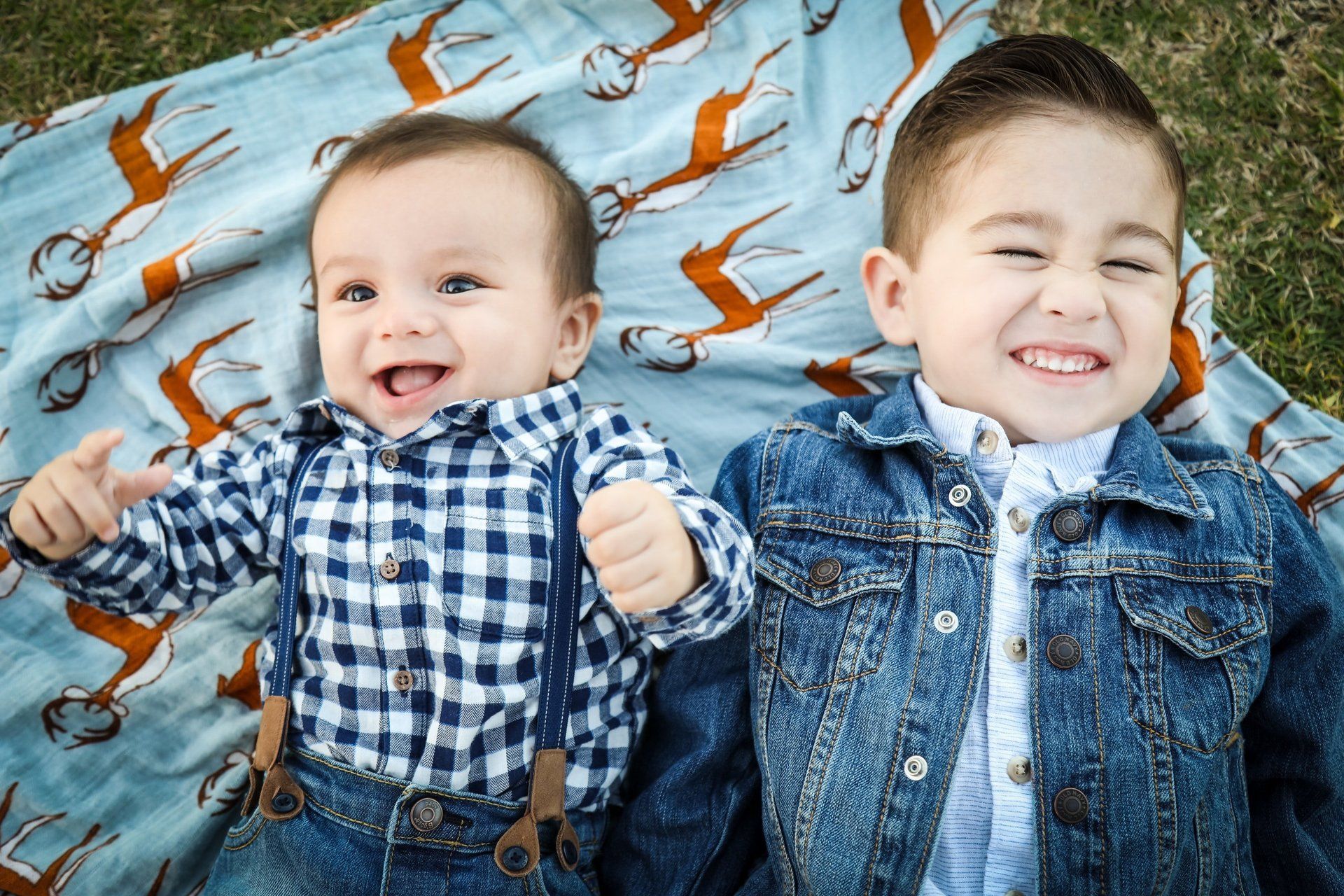
“I peed all over myself and I ruined my new, special, sparkly shoes from my baby sister. It was my gift from my baby sister! It’s all ruined!” Where are the tips for parents on that one? This was not at all how I imagined my first night home from the hospital with my second daughter but that is the first thing I heard when I walked through the door. No, the night I brought my newborn into my family fold was carefully planned and rehearsed in my mind. My toddler would come to meet us at the hospital. Then we would all go home as a family and we would turn in early. But the best-laid plans are just that – plans- and reality is a grainier version of our dreams so often. At least it was that night. One of the most important principles of integrating a new sibling into a family is to make sure that the older son or daughter still feels special during the whole process. So, we had slyly sleuthed out a gift “from” baby sister that she would receive at the hospital. In this case, in keeping with my daughter’s obsession with fancy shoes (not my fault, I swear), we bought her a pair of gold, glittery mary janes with huge bows on the toes. When she arrived to meet her new sister, she was ecstatic to see her and to try on her shoes. So ecstatic, in fact, that she forgot tha t she needed to make a potty stop later that afternoon while on a walk. She fell while running down an incline on the sidewalk in the neighborhood and came home with a bloody knee, urine in her shoes and a very discouraged dad. The bad news? Things didn’t go quite as planned. The good news? By the next morning, she had completely forgotten about the incident and was back to her happy self. AND, the more important things we planned DID work.








